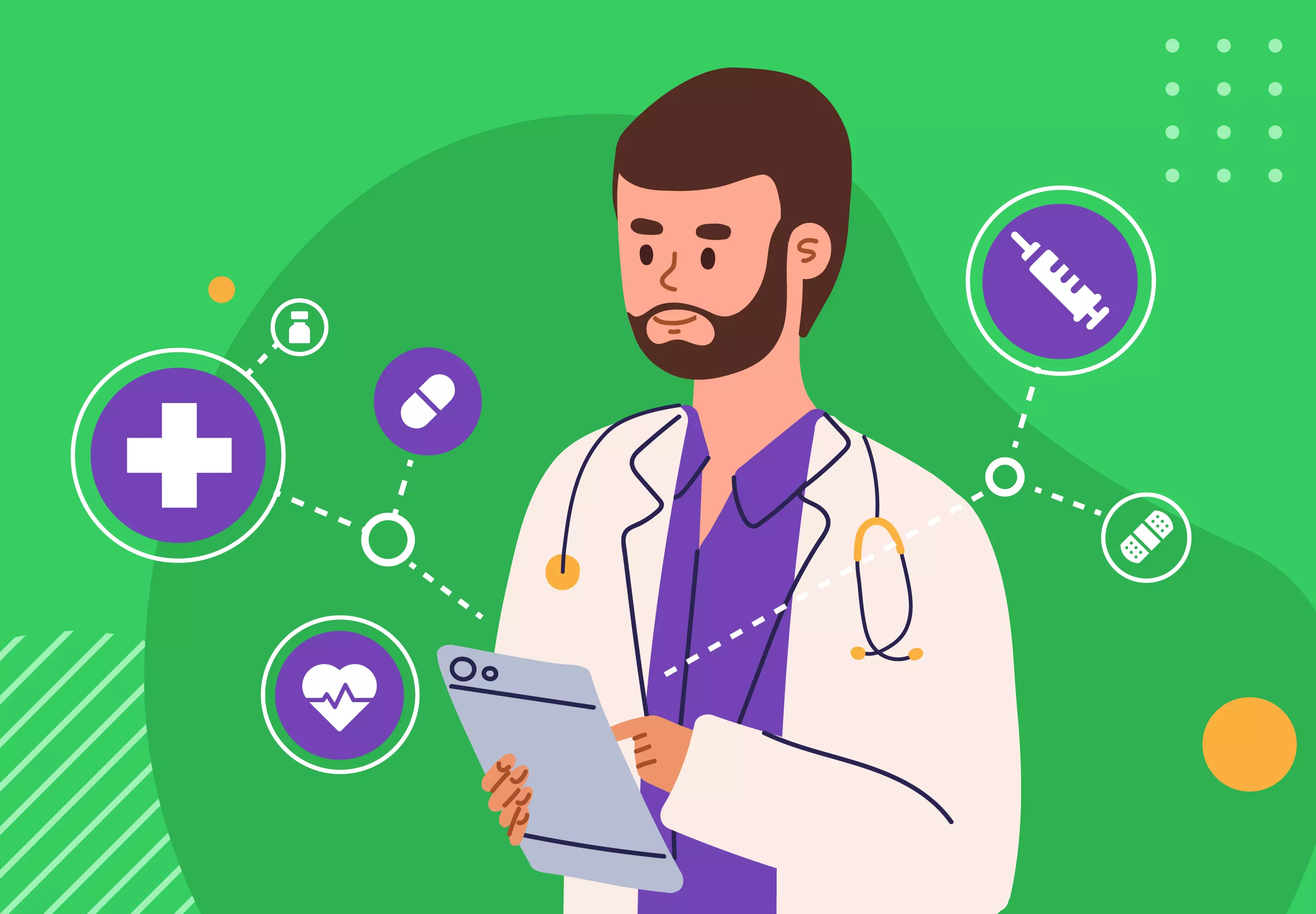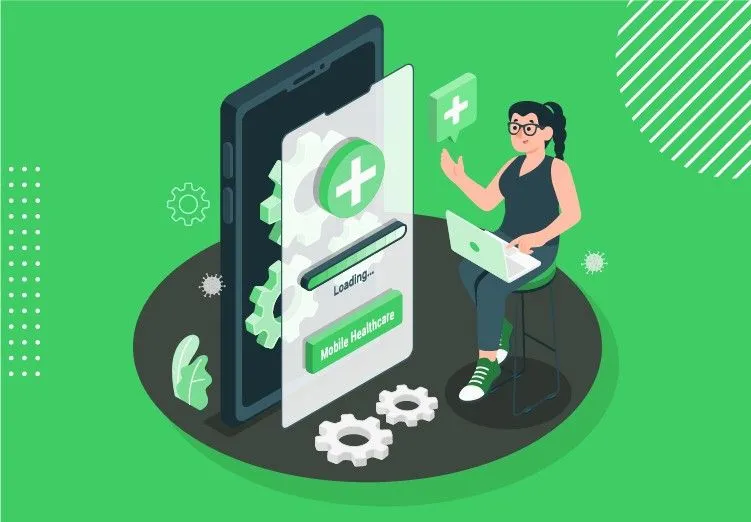Key Healthcare Challenges Solved by Software Solutions
Table of contents
#1 Explosive growth of data volumes
The more patient-related data occurs, the more challenging it becomes to store, process, and manage it effectively, not to mention useful insights that could be gained from big data analysis. Healthcare companies need a data-driven infrastructure to avoid failures and mismanagement.
Cloud and mobile are the answers. Cloud-based solutions provide real-time access to clinical pictures, diagnoses, therapies, prescriptions, case histories, etc. There is no limit in data size to store, and the health records are secured. Cloud-based data analytics will allow organizations to gain new business insights beneficial for building their strategies.
Mobile applications and online mobile portals also offer a simple and flexible way to access vital data, regardless of whether you are a patient or doctor who needs the info.

#2 mHealth is going mainstream
With the immense popularity of wearables and urgent need to access the info on the go, using mobile phones and wireless tech in medical care and solving health issues becomes a must.
Mobile healthcare apps are evolving every day — they deal with remote locations, provide a reliable experience, and ensure high performance.
Ultimately, many users find web applications far less convenient to utilize or sometimes they have issues with the access.
One of Emerline’s healthcare projects was targeted at reaching a wider audience, including those who prefer smartphones to computers. With the iOS and Android apps available for end users, our customer expanded their consumer audience, as mobile solutions highly increased the convenience of the product.

#3 Demanding patients
An overall desire to gain an impeccable customer experience is quite typical of the healthcare industry, too. A level of customer service increases together with the rise of patients’ expectations, and to stay competitive in the market, healthcare businesses exert every effort to attack, broaden, and retain their audience.
Among the safe and proven methods of creating a great customer experience is building a scalable solution to ensure smooth customer-provider relationships. It could be an online portal that keeps all relevant patient data in one place thus preventing you from mistakes, which could be fatal in the healthcare industry.
#4 Particular interest of attackers
A healthcare sector is especially prone to cybersecurity threats due to the high value of personal health information. Healthcare providers that are still using outdated technologies suffer from data breaches most. This is exacerbated by the fact that attackers struggle to exploit as many vulnerabilities as possible.
Nowadays the healthcare companies need to carefully select special cybersecurity strategies and rely on the latest technologies — artificial intelligence and machine learning solutions deserve special attention, as they will help to detect and prevent tricky or previously unknown threats.

#5 Shortcomings in available payment options and price assessment
Patients expect the freedom to choose the most convenient payment method thus requesting a number of options suggested. Moreover, nobody is immune to claims for unfair prices.
First, healthcare businesses should no longer be limited to one payment option only — various should be provided (cash, mobile, credit card, bank transfers, eChecks, and others). Do not hesitate to test brand new payment models and approaches — it can be a key to reduced costs, effective patient-focused care, and increasing revenue. The more alternatives you provide, the broader audience you reach.
Published on May 15, 2023





